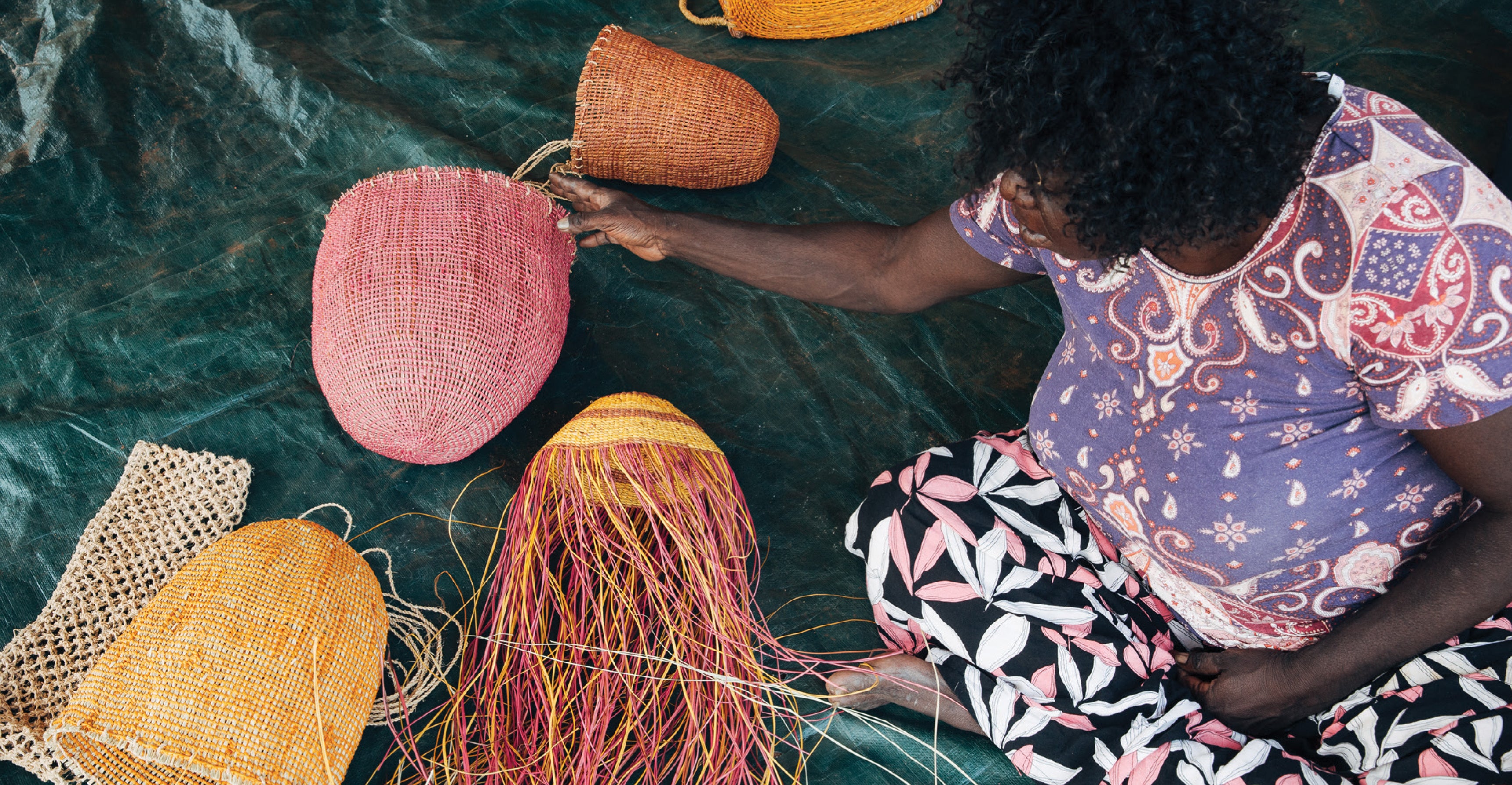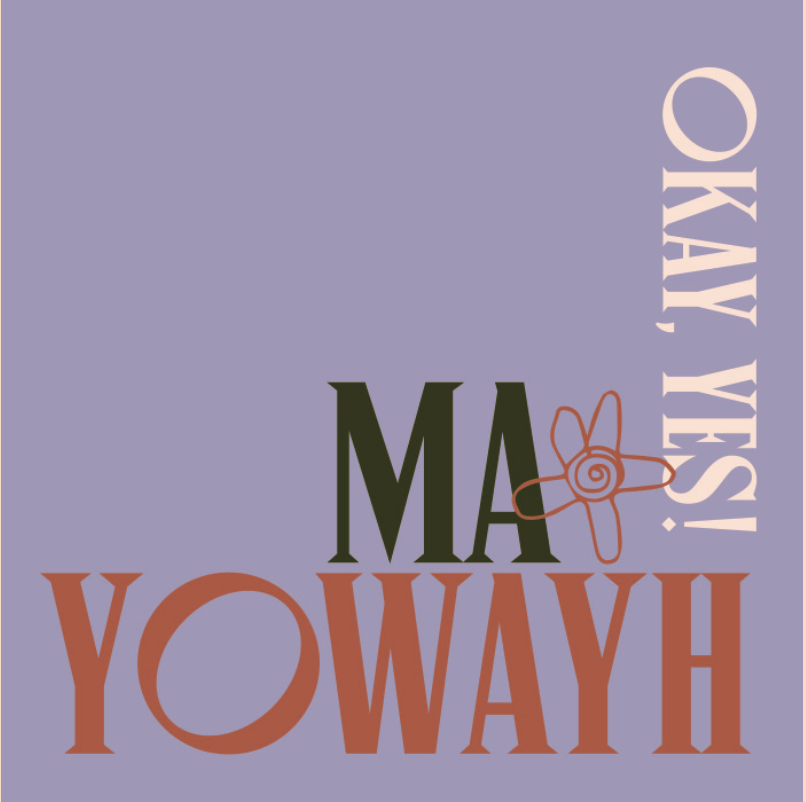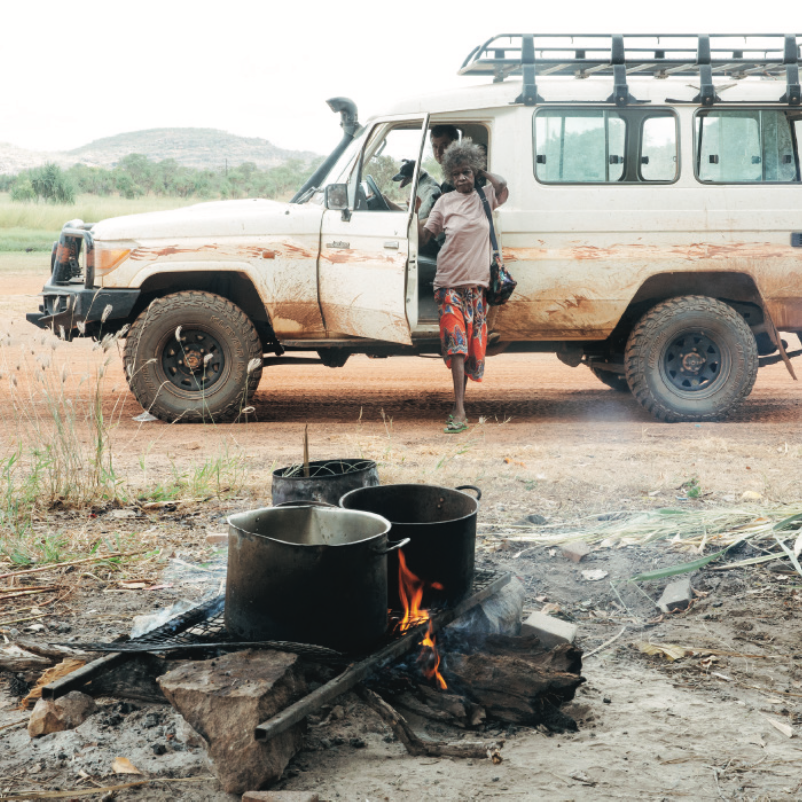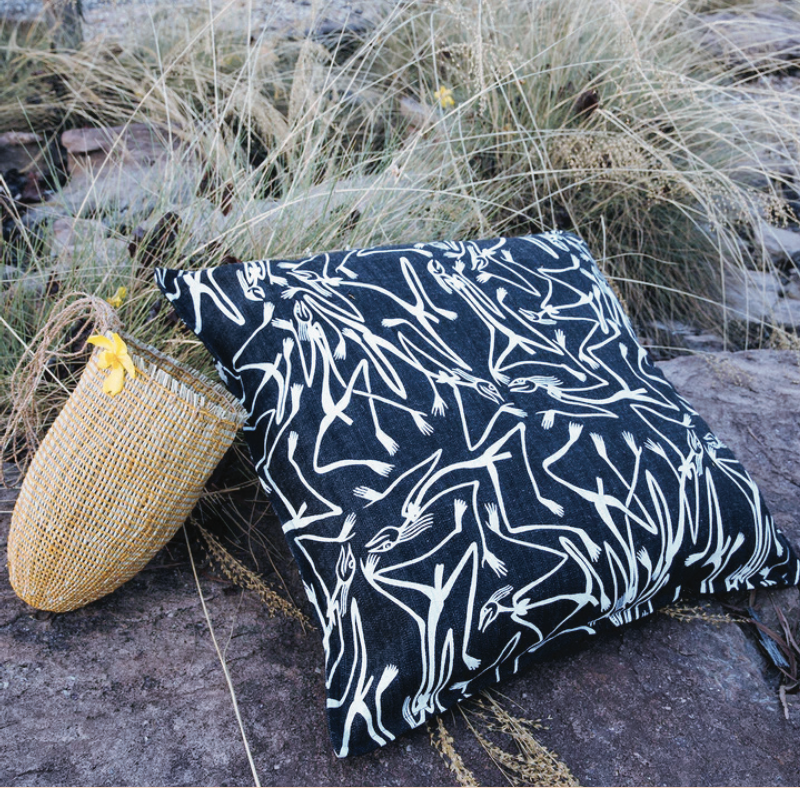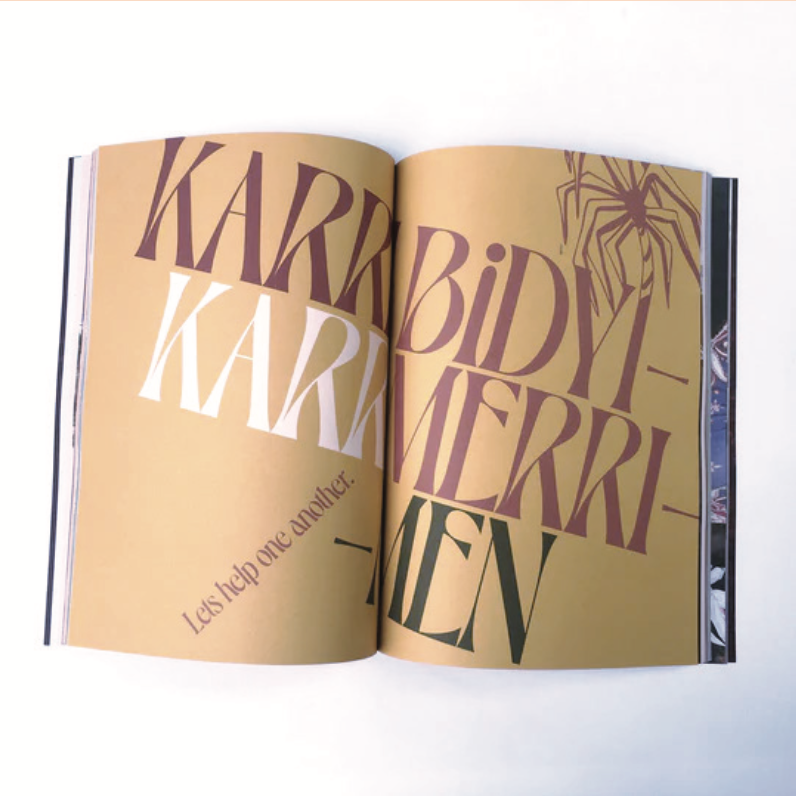 Our journey
Our journey
In 2015, NORTH began as a mechanism to make viable the trade of hand-screen printed textiles from remote art centres to the interior design market. Through collaboration and being guided by the excitement and hopes of artists we were working with, NORTH evolved into a fashion label.
Casting our gaze over the industry as it stands now, it is abundantly visible that the gap we saw back then no longer exists. We feel excited to be watching such incredible First Nations designers emerge, alongside the integration of Indigenous designs into the mainstream market through meaningful and dignified collaboration processes.
We are so proud to have been a small part of the many efforts made to bring Indigenous textiles to the forefront of the Australian design agenda - and it feels like such a brilliant reason to be stepping back.
While NORTH as an retail enterprise will close, we’d love you to stick around. The NORTH Foundation will support people from remote communities to elevate their voices and knowledge, and share with broader society the incredible stories, art and languages from northern Australia. We hope you will attend one of the many talks and workshops on offer!


